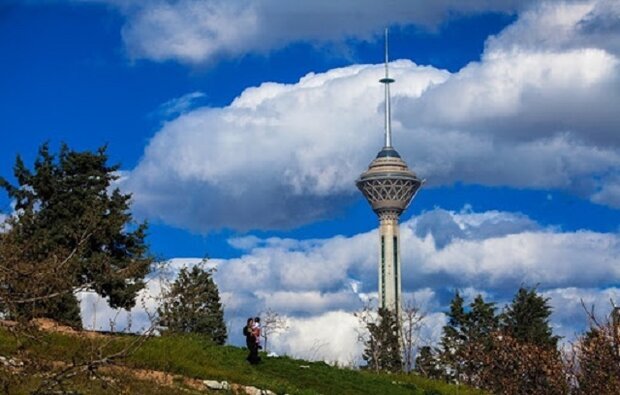Implementing Clean Air Law to gather pace

TEHRAN – The chief of the Department of Environment has said the implementation of the Clean Air Law will speed up in the next {Iranian calendar] year which starts on March 21.
With the support and sympathy of the government and the parliament, the implementation of the Clean Air Law will be accelerating, IRNA quoted Ali Salajeqeh as saying.
Speaking on the occasion of Clean Air Week, Salajeqeh said: “In next year's budget bill, 20 percent of green taxes will be allocated to the environment to deal with air pollution.”
Green taxes include taxes on pollution, energy, carbon emissions, fuel consumption, waste production and disposal, use of natural resources, motor vehicles, and other taxes on transport.
The main key to reducing air pollution is public participation and increasing inter-departmental coordination, he said, adding that Clean Air Day has always been an important factor in boosting public participation and inter-sectoral coordination to combat air pollution.
He announced that the National Environment Award will be held in March and the 24th National Conference on Industry, Mining, and Green Services will be held on Clean Earth Day next year.
In the near future, the information on monitoring the implementation of the Clean Air Law will be available to the public through the portal of the Department of Environment, he highlighted.
Also, the National Environment Fund is responsible for providing loans and granting facilities to responsible bodies, industries, and municipalities to purchase and renew the equipment they need, he stressed.
Referring to the emphasis of the Leader of the Islamic Revolution on environmental policies in order to realize a green economy, he said that attention should be paid to the development of low-carbon industries, the expansion of clean sources of energy, waste management, the development of green and non-fossil transportation, and also the promotion of public transport, especially in big cities.
Clean Air Law
The Clean Air Week started on Saturday with “realization of clean air, public rights, national will” as the slogan.
Air pollution is one of the main concerns of the government; Therefore, all organizations are obliged to act based on the Clean Air Law.
The Clean Air Law, enacted in July 2017, was supposed to be a solution to ease air pollution across the country, but now, the air is severely polluted, as the responsible bodies neglect their legal duties to implement the law.
The law has defined responsibilities for the Ministry of Interior, the Ministry of Oil, the Ministry of Energy, the Ministry of Transport and Urban Development, the Ministry of Industry, Mining, and Trade, the Ministry of Agriculture, the Department of Environment, the police, the municipality, the National TV, and some other organizations.
In this regard, according to the three-year plan of the Ministry of Oil, which was presented to the Department of Environment, the amount of sulfur in diesel fuel is supposed to be reduced to a great extent, in order to meet the national standard.
A total of 1.8 quadrillion rials (nearly $5 billion) is required to implement the Clean Air Law.
According to the Clean Air Law, the Ministry of Oil is obliged to produce fuel, including gasoline, gas oil, fuel oil, and kerosene in accordance with approved national standards (Euro 4).
Also, the share of motorcycles in the production of gaseous pollutants is about 21 percent and in the production of suspended particles is 10 percent.
In addition, each ten carbureted motorcycles emit as much particulate matter as an old diesel bus per kilometer, which is a major cause of air pollution.
MG
